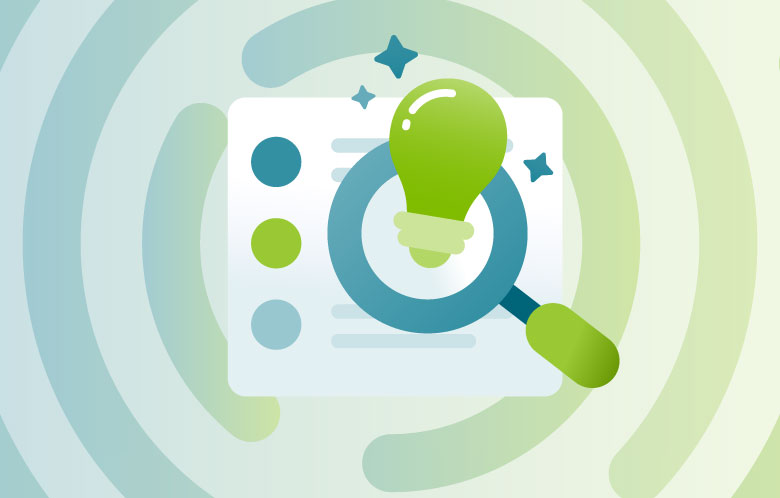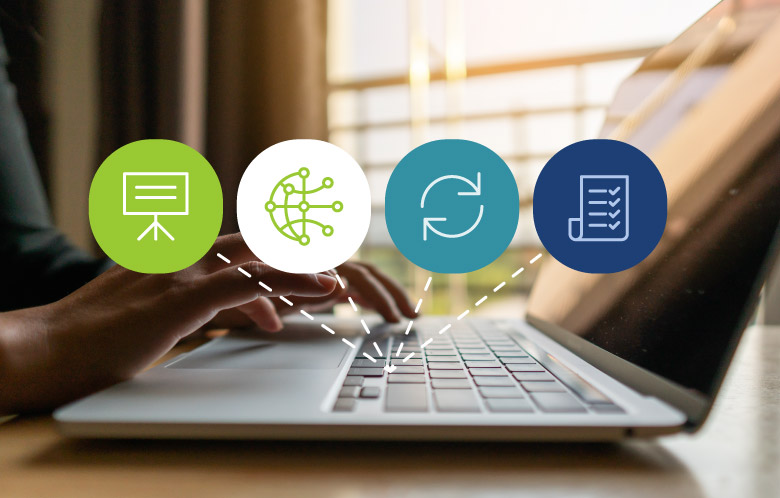It’s easy to follow the trends. Jumping on the “next best thing” is a roadmap anyone can follow because its set by what everyone else is doing. Creating products and services that integrate the latest and greatest in technological advances isn’t that easy though. There are costs — opportunity, monetary, and environmental — that need to be considered, and whether AI is the best technology for the solution. Following the trends is often not the best strategy either because every product has a user base and not all user bases will need or want the trendy tech. Specific users have specific needs and while new technology can help develop solutions that are innovative, selecting which technology works best for which problem being solved needs to be done thoughtfully. Which is why when it comes to AI in EBSCO products, we are taking a thoughtful and measured approach to make sure we are focusing on what will help users the most.
EBSCO has always had a user-first approach. The folks using our products are dealing with problems and inconsistencies in the information discovery and research process daily and therefore have a strong voice in what would alleviate those issues. This is why EBSCO follows a pragmatic user-first approach to gathering and taking action on our users’ feedback, while also presenting users with experimental designs and ideas we have created to understand and potential resolve issues they are facing. The pragmatic approach follows a few design principles that span across user and customer feedback:
Market problems and solutions
EBSCO has different levels of engagement with power users and influencers within the research space such as advisory, steering and focus groups. We also have dedicated product management (PM) and strategy teams focused on identifying market problems, engaging with new voices, conducting research, and exploring new technology and tools in the market. They keep a pulse on the research landscape to know when and where to implement change.
EBSCO Director of Research Database Product Management:
“We are passionate about investigating market problems to design products that truly meet the needs of our users. By partnering with researchers and librarians, we can build, curate, and continuously improve our research databases to provide reliable, high-quality content that empowers users in their lifelong learning and professional growth. Our goal is to create solutions that not only solve immediate problems but also make a lasting impact on how users engage with and access academic resources.”
Fit for technology and product plans
When planning for a new solution, the technology ecosystem needs to be assessed to understand the lift to integrate the new technology, assess the costs, and understand what needs to be offset in the current product plan. This is part of our responsible AI tenants at EBSCO. We assess if AI is fit for purpose, understand the costs and investigate simpler solutions to address issues.
EBSCO Manager of AI Solutions:
“I am dedicated to giving users fresh insights into our content and balancing the costs and environmental effects of those solutions. It is exciting to work with innovative techniques that can dismantle barriers that limit access to information and unlock deeper knowledge discovery. Our goal is to enrich content and introduce new ways to interact with it, all while upholding uncompromising quality standards. Every day there are incredible new opportunities out there to help users with their research goals, and I am committed to connecting them with cutting-edge experiences effectively and responsibly.”
Iterative experimentation and beta testing
EBSCO conducts innovation labs, as well as a dedicated invention-week and hackathon, every three months to experiment and foster creativity and collaboration between our PMs, technology leads, engineers, librarians, and strategy teams. During experimentation, participants collaborate with people from different teams or roles. They take user and market problems as their guide, and keep the EBSCO technology ecosystem in mind while trying new and innovative approaches to solving these issues for our users.
EBSCO Principal User Experience Researcher:
“User Research is a cornerstone of EBSCO’s product development process. We are constantly gathering feedback from users to ensure our products meet the organic needs of students, faculty, librarians and researchers around the globe. We use a variety of research methods to collect this data, including contextual interviews, usability testing, concept testing, card sorting, benchmarking, and A/B testing, to name a few.”
Regularly engaging with customers and users alike is critical to maintain the quality of product solutions, and to make sure we are aligned with the evolving needs of our users.
Business plan and distribution
Working with market research, customers, beta testers, and the technology team, our Product Managers are always thinking through the ease of integration and use for products.
EBSCO Senior Innovations Product Manager:
“I'm focused on improving the research experience for students, faculty and librarians through evidence-based decisions. My team collaborates with user research specialists and conducts market studies to understand the evolving needs of users, help libraries stay central in this shift and understand how we can make products that are delightful for users. We design based on customer and user feedback, market evolution, and new techniques from scholarship, all with the aim to help evolve libraries and research institutions to a better, more efficient and exciting research experience.”
Through our close partnership with librarians and users, and our innovation lab researchers testing new techniques from scholarly and customer-led research, EBSCO stays updated on emerging trends to effectively address customer and user challenges.
“It is critical that people have access to trustworthy resources and that information literacy is easily achievable to support knowledge empowerment. When I am thinking about new functionality to introduce to our products, I focus on ensuring that it supports our customers and their users during their research and knowledge-seeking journeys. Experimentation and beta testing help us accomplish this.”
“It is critical that people have access to trustworthy resources and that information literacy is easily achievable to support knowledge empowerment. When I am thinking about new functionality to introduce to our products, I focus on ensuring that it supports our customers and their users during their research and knowledge-seeking journeys. Experimentation and beta testing help us accomplish this.”
Enabling support and success metrics
What does it mean to have successfully implemented a solution to a problem? How can that be measured? How is training and support spun up? And how is customer feedback integrated once a product or service is launched? Defining the metrics to measure success is crucial and involves understanding how users will use the product, but also how they will assess the effectiveness and quality of what is offered.
EBSCO Principal Product Manager of Product Innovation:
“My goal is to make the research process smoother for our users. By working closely with our UX Design & Research team and librarians, I strive to find solutions that help users conduct their research more efficiently while still maintaining the crucial steps needed for high-quality academic results.”
High quality is at the core of everything EBSCO does when developing a product. We also pride ourselves in providing exceptional customer support through our dedicated support specialists and sales partners. And I say partners specifically because EBSCO has always been a partner and solution consultant first and foremost to our users.
EBSCO Director of SaaS Sales:
“When I am talking with libraries about our resources, I am proud to share the work we do to ensure what we are building is the most usable for their community. I appreciate and admire that we think of all types of users; whether they are first-year students, doctoral candidates, advanced medical researchers working parents getting their degree as time allows, public library patrons, and beyond. Our focus on equity in research is critical and sets us apart from any other provider, and helps libraries know we understand what they do matters.”
User First. Always.
At EBSCO, we prioritize the user in every step of the process. We focus on how our work benefits researchers, addressing their programs, and how we can invent on behalf of researchers. This is why every product feature, including those related to AI, is always focused on the user first.
Join us in our journey of innovation and exploration by signing up for our AI Beta program, where you can partner with us in testing new solutions and brainstorming ideas for the benefit of all researchers.



